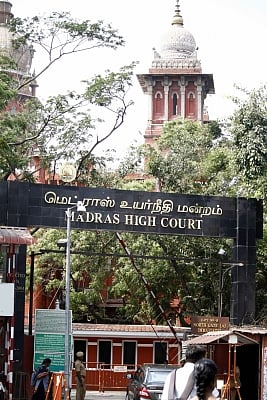Madras High Court upholds Tamil Nadu’s strict online real money gaming regulations
Court says rules are reasonable restrictions designed to protect public health and welfare

Chennai: The Madras High Court on Tuesday upheld key Tamil Nadu government regulations aimed at curbing excessive use of online real money gaming platforms.
A Division Bench comprising Justices S.M. Subramaniam and K. Rajasekar dismissed a batch of petitions filed by online gaming companies and players challenging the legality and constitutionality of the measures.
The court ruled that the night ban on gaming and Aadhaar-based Know Your Customer (KYC) verification are “reasonable restrictions” designed to protect public health and welfare.
Rejecting the petitioners’ claims that the rules infringe on the Right to Privacy, the court stated that while the Right to Privacy is fundamental, it is not absolute and can be limited in the interest of public health and order.
The petitions challenged provisions of the Tamil Nadu Prohibition of Online Gambling and Regulation of Online Games Act, 2022, along with 2025 regulations framed by the Tamil Nadu Online Gaming Authority.
Specifically, they contested Section 5(2) and Section 14(1)(c) of the Act, as well as Regulation 4(iii) and 4(viii), which mandate Aadhaar-based KYC and restrict access to real money games between midnight and 5 a.m.
Time limits
Section 5(2) empowers the authority to set limits on time, money, and age for online games and regulate their operations. Section 14(1)(c) prohibits non-local gaming providers from offering services that violate state regulations.
The contested regulations require users to complete Aadhaar-based login verification supported by a one-time password (OTP) sent to the Aadhaar-linked mobile number. Additionally, the “blank hour” clause bars players from logging into real money games between 12 a.m. and 5 a.m.
Gaming companies argued the state was indirectly attempting to ban online rummy and other real money games by imposing restrictive regulations disguised as controls. They also contended that the Centre’s Information Technology Act exclusively governs online gaming, limiting the scope for state intervention.
The High Court disagreed, affirming Tamil Nadu’s legislative competence and stating the measures serve public interest and are not arbitrary.
With this verdict, Tamil Nadu joins a select group of Indian states implementing stringent regulations on online real money gaming platforms.
Sign up for the Daily Briefing
Get the latest news and updates straight to your inbox
Network Links
GN StoreDownload our app
© Al Nisr Publishing LLC 2025. All rights reserved.